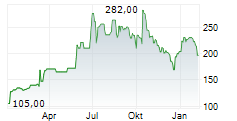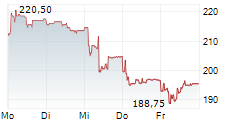
Campine well positioned to tackle new Chinese restrictions, which will impact global antimony markets
Regulated information - August 21st 2024 - 09:00
On August 15th, China announced to impose export restrictions on a range of antimony substances, including antimony ore, metal, and oxides.
As one of the worlds largest consumers of antimony, Campine does not expect supply issues on the short term. "We have reduced our antimony metal sourcing from China to below 5% and we are partly supplied internally through our antimony recycling." states Hans Vercammen, Campine's Specialty Chemicals division director and chair of the international antimony association i2a.
Campine uses antimony in several of its businesses and with a consumption between 10 and 12 thousand tonnes per year, it is the largest consumer of this metal outside of China. Antimony is for instance used in the Specialty Chemical division to produce the chemical antimony trioxide, as well as for its lead-alloy formulations in the Circular Metals division.
Since several years Campine has positioned itself as a pioneer in antimony recycling. Today about 15% of its total antimony needs are already generated through its own proprietary recovery processes. "The current antimony prices and this decision of China, prove us right in having invested in antimony recycling processes" says CEO De Vos, who adds that "We are currently developing the 3rd generation of antimony recycling, which should allow us in time to account for 50% of our needs, and at current prices returns are even more promising". Last week, antimony metal prices have reached 24,000 $/tonne, which is double than the average of about
12,000 $/tonne in 2023.
As all details of China's decision have yet to be uncovered, Campine is closely monitoring all aspects of the new ruling. Whilst short term price spikes and continued tightness for antimony can be expected, Campine is confident it will be able to continue to serve all its markets as normal. "We could even have to increase supply to overseas markets like the USA and Japan as the Chinese antimony oxide restrictions could impact those regions, who rely heavily on Chinese products" Vercammen adds. Import trade statistics confirm that market share of Chinese antimony oxide suppliers in the USA has already dropped from 72% in 2023 to 63% in the first half of 2024.
The European Union, as well as the US administration have classified antimony as a critical material in their respective Critical Raw Materials Acts. Campine hopes that European legislators will continue to support and subsidise innovative antimony recycling initiatives to assure future availability of this critical material for the industry.
Antimony(trioxide) from Campine is used in flame retardants, pigments, PET polymers, and in lead-alloys for car and energy storage batteries.
Campine will issue its 2024 first semester financial results on September 2nd.
For further information you can contact Karin Leysen:
tel. +32 14 60 15 49 / email: Karin.Leysen@campine.be



